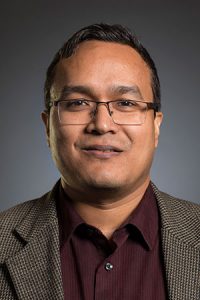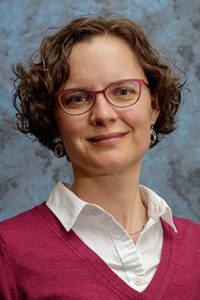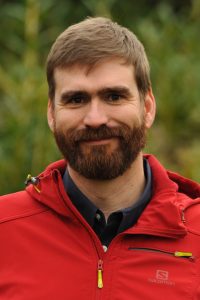The Future of Food: Protecting Human and Environmental Health
By 2050, the earth’s population is estimated to reach nine billion which will intensify a growing food security crisis, exacerbated by current agricultural processes, climate change and economic inequality. This fall, hear from three UW professors, including Freshwater faculty Faisal Hossain (civil & environmental engineering) and Gordon Holtgrieve (aquatic & fishery sciences), about how engineers and scientists are working to improve the quality and quantity of food we eat and grow. This lecture series will take place in Kane Hall, and is free to attend.
Growing More with Less: Smart Tech Solutions to Feed the World
Thursday, October 10 | 7:30 PM
Kane Hall 130
Faisal Hossain, Professor, Civil & Environmental Engineering, College of Engineering
Asia has some of the fastest growing economies in the world, but it is also home to two-thirds of the global hunger population. Regional monsoons impact efficient water management and reduce agricultural yield. Professor Hossain is utilizing global weather models and satellite data to develop technology that will help farmers increase crop yield through sustainable water management.
Human and Ecosystem Health: Arsenic in Food, Water, Plants and Animals
Wednesday, October 23 | 7:30 PM
Kane Hall 130
Rebecca Neumann, Associate Professor, Civil & Environmental Engineering, College of Engineering
Arsenic is a naturally occurring but carcinogenic pollutant. Its ubiquitous presence in natural and agricultural environments threatens global food security and negatively affects the health of millions of people worldwide. Professor Neumann, an arsenic expert, is advancing knowledge of how arsenic in local and global settings affects food and water quality, and the health of ecosystems.
Floods, Fish and People: Challenges and Opportunities in the Mekong River Basin
Thursday, November 7 | 7:30 PM
Kane Hall 130
Gordon Holtgrieve, H. Mason Keeler Associate Professor, Aquatic & Fishery Sciences, College of the Environment
Freshwater ecosystems provide food security, energy and water to people in the Mekong River Basin. Habitat alterations, pollution, climate change and over-exploitation are putting the health and livelihood of communities at risk. Professor Holtgrieve is working in the Mekong River Basin to address how energy policy, watershed hydrology and ecosystems interact, in order to mitigate the effects of hydrologic and climatic change around the globe.
Find out more about the speakers’ research in the UW feature Fueled by Floods.



